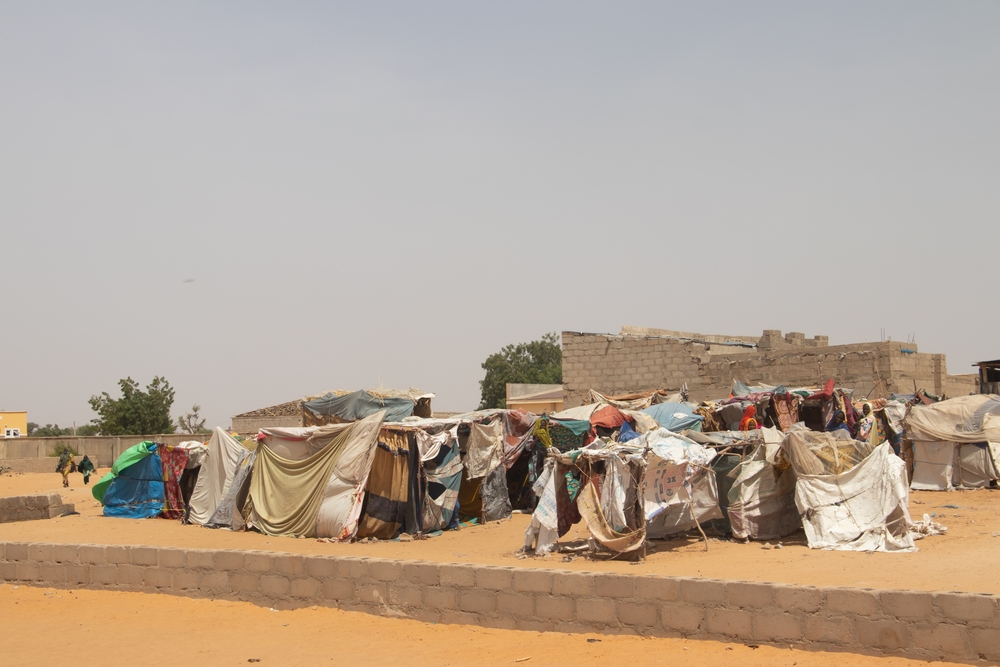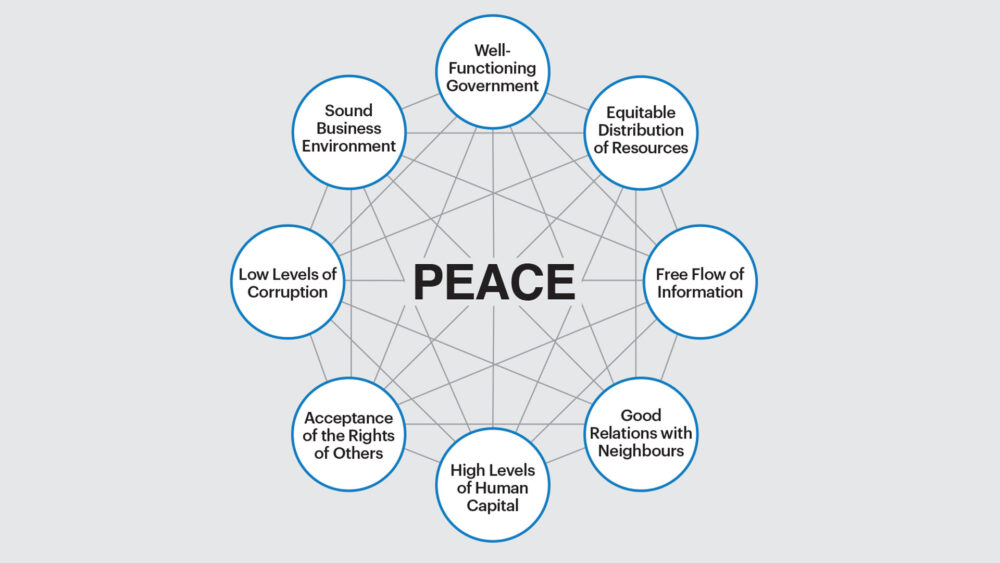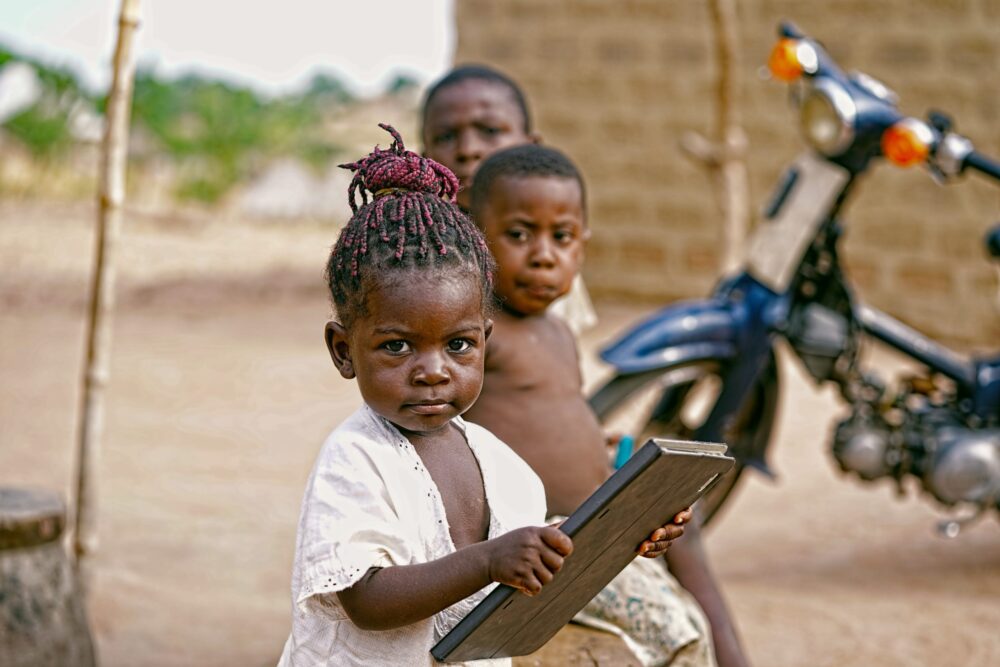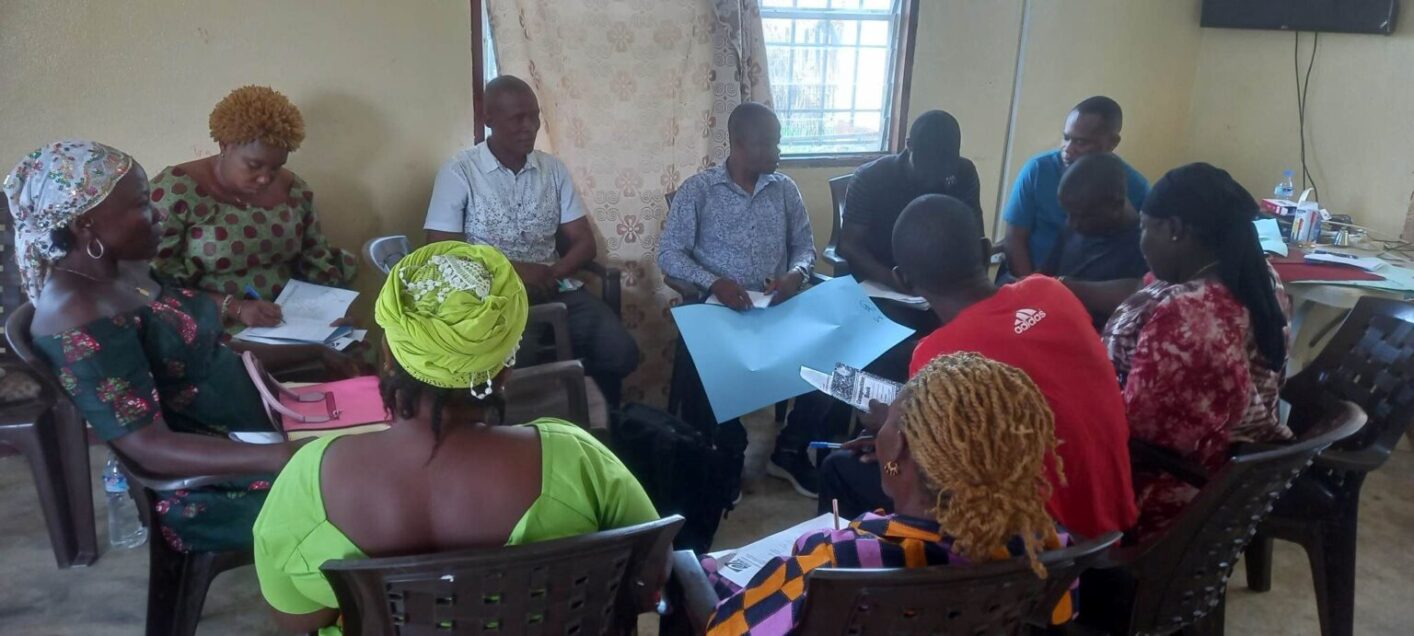By Ndzi Divine Njamsi, Rotary Peace Fellow and Positive Peace Activator
“I am a peacebuilding professional from Cameroon with over eight years of field experience working on youth capacity building in peacebuilding, governance and democracy. In November 2022, when I was a student at Makerere University in Kampala, Uganda, as a Rotary Peace Fellow, our Program Officer shared an opportunity to get trained in Positive Peace – an in-person Positive Peace Activator Program for Rotary members, Peace Fellows, and other community peacebuilders in West and Central Africa. I was very excited about the program because it would allow me to acquire more community peacebuilding skills, so I applied.
I took an interest in Positive Peace and the Activator training due to problems affecting peace in Cameroon – bad governance, hate speech in online spaces, tribalism and inter-communal conflicts, violent extremism, and, above all, the ongoing Anglophone crisis (a socio-political crisis in the North West and South West Regions of Cameroon) plaguing the regions of Cameroon since November 2016 with more than 3000 dead and more than 5000 refugees in Nigeria (according to UNHCR). The concept of Positive Peace is not well-known in the civil society space of Cameroon or in Central Africa in general. That is why there is an urgent and rising need for an innovative way of fostering peacebuilding through the Positive Peace training, with trainees partnering with local associations and organizations to do the peace-building work.

The Rotary Positive Peace Activator Training in Lagos
By mid-December 2022, I received an email that I’d been selected for the Rotary Positive Peace Activator training program in early April 2023. I joined 49 other trainees from 12 West & Central African countries in Lagos, Nigeria. I was privileged to be among the 49 trainees (Rotarians, Rotaractors, Rotary Peace Fellows, and other stakeholders) – selected out of more than 450 applicants. The focus of this 20-hour, three-day learning opportunity was to reassert Rotary’s mission, vision, and peacebuilding work, combined with the Institute for Economics & Peace’s (IEP) Positive Peace framework.
Together, we look at how trainees can make use of and improve upon Rotary’s network and capacity to prioritize its areas of focus to address societal needs. All this, of course, was done in a bid to effectively contribute towards enhancing peace and good in West and Central Africa. I was very satisfied with the content of the training they offered and their commitment to service!
Lessons Learned
Through the Positive Peace Activator Training program, I did not just have the opportunity to better understand the details around the concept of Positive Peace. I also had the opportunity to learn more about the eight Pillars of Positive Peace:

I learned that the eight pillars can be incorporated into my work in Cameroon, providing me with a blueprint for effective peacebuilding activities.
I also learned about the other areas of Rotary International’s focus apart from Peacebuilding and Conflict Prevention, and how they all connect to and contribute to Positive Peace. I retain that both Rotary and IEP are not only working in synergy for peacebuilding but also to promote sustainable development goals to make the world a safe haven.
Commitment Taken
At the end of the training, I made a commitment to foster Positive Peace within the Rotary world, in my country Cameroon, and in the Central African Region in general. In line with this, I have made contacts with some local organizations and the Yaounde International Business School (YIBS) where I began training sessions with students on Positive Peace. The goal is to incorporate this concept and practice into their training program.
I am also connected with my YALI (Young African Leaders Initiative) network and will offer training on Positive Peace within this network in the Central African region. I also want to work with you – Rotary members – in Cameroon and beyond. As a Positive Peace Activator, my 200+ fellow Activators and I are located across six regions globally and can work with you on peace projects, provide training, and support your peace initiatives.

By Elizabeth Nite, Positive Peace Activator in East Africa
Cases of domestic violence in its various forms have continuously escalated in Kenya, intimate partner violence (IPV) being the most common in Kenya, and women, youth, and children are the most affected. DV has profound effects on the individual as well as society in general as it affects future generations and family ties. Children who have either witnessed domestic violence or been abused usually exhibit behavioural and traumatic problems.
They in turn have difficulty at school and find it hard to develop close and positive relationships with their mates. Household participation in society plays a key role in socio-economic development including governance, poverty elevation, and environmental management. This suppression denies the chance of reaching full potential and in turn, undermines human and economic development progress.
As Kenyan households embrace post-COVID-19 new norm(s), there is a need to arrest the general stress expressed as a form of domestic violence by controlling the threats to peace processes. If DV is not controlled at the household level, then we risk experiencing a drastic rise in mental health and trauma cases in Kenya. It is important to address DV as a way of not undermining the progress made in Kenya and Globally towards upholding human rights as well as sustaining peace for individuals, families, communities, and societies at large.
Violence is infectious and affects human, social, and economic development. Peacebuilders must care about DV because it disrupts existing social networks and protection mechanisms within a household and community at large, thus creating a vicious cycle of violence. As a peace fellow, I have created a positive peace awareness video animation tool. 100 women, youth, and men representatives of 50 self-help groups convened to video information sessions on the pillars of positive peace. Participants were identified through the local administration and community influencers or gatekeepers within the communities living in Ongata Rongai and Kiserian in Kajiado County. The sessions integrated vis, focus group discussions, and games.
Video-Based Animations
The video-based animation is in a format that can be uploaded and viewed on various platforms to scale up the VIS. The intention is to use the virtual space to hold positive peaceful conversations. The tech kids are fascinated with this concept and gaming and animations are a great way to inculcate positive peace concepts in the children. A multiplier effect of the VIS is evident as more individuals appreciate and understand their roles as peace ambassadors within their households and their communities at large. The eight pillars of positive peace will become a household conversation that triggers the desire for more than just negative peace. We have to invest in peace just as we invest in violence.

By Richelieu M. Allison, Positive Peace Activator West & Central Africa, Executive Director of Center for Security Studies and Development (CENSAD)
30 Participants Benefited For The Second Training Which Just Ended
In continuation of its effort to promote peace and nonviolence conflict resolution in key border communities in the Mano River Union, the Center for Security Studies and Development (CENSAD) has completed the second cross-border training workshop on Positive Peace and Conflict transformation at the Liberia-Guinea border.
In his three-hour presentation, he emphasized the roles of women, youth and local people in the process of peacebuilding. He also called for the strengthening of the relationship between border communities and border security to increase social cohesion and strengthen mechanisms for nonviolent conflict resolution in borderlands. As part of the training, more than 30 participants, including Commercial Motorcyclists, border security, women leaders and local officials, were trained on topics ranging from the 8 pillars of positive peace, reconciliation, local governance and cross-border conflict resolution.
The long-term goal of each workshop is to help enhance positive peace and also ensure that communities have a voice in telling stories of their security challenges. It aims to further address the drivers of conflict and instability, in the border region of the Mano River Union through improved cross-border coordination and cooperation.
The Yarn Game brings Peace Awareness
A positive peace awareness was scripted and animated around the household setting, and a short film was produced by a colleague peace fellow from Liberia. In this way, community members not only understand but also identify with the realities in their respective households. After each video, focus group discussions were held where participants shared their experiences and testimonies. One participant who had been battered two days before testified to healing emotionally after the visit. A ‘yarn game’ was incorporated as a tool for learning the 8 pillars of positive peace. This must have been the most exciting and engaging piece for sensitizing participants about their roles in sustaining positive peace in their communities.
Participants committed to positive peace by receiving a sticker of the eight pillars. Some areas where participants come from were visited, the stickers were either at the main entrance or on the wall of their living rooms. Community members have reached out requesting sessions. Women have shared testimonies on how they apply the pillars of positive peace to solve conflicts in their residential areas. Youths have been inspired to be change-makers, and a few registered an organization to circle up their fellow youths for positive peace.
Connect with us at [email protected]. If you are interested in joining a future Activator training, please visit the website for the Positive Peace Activator program.